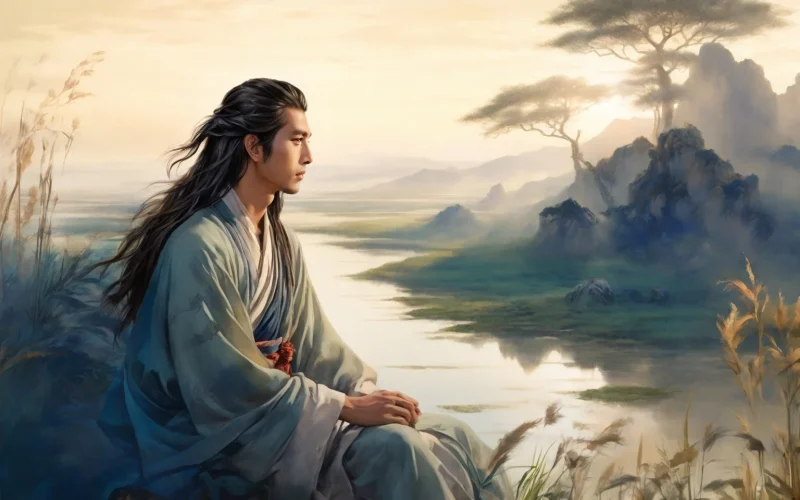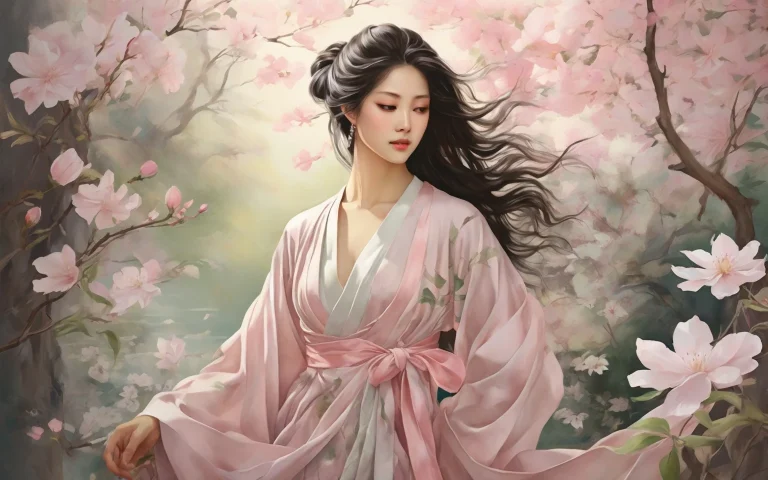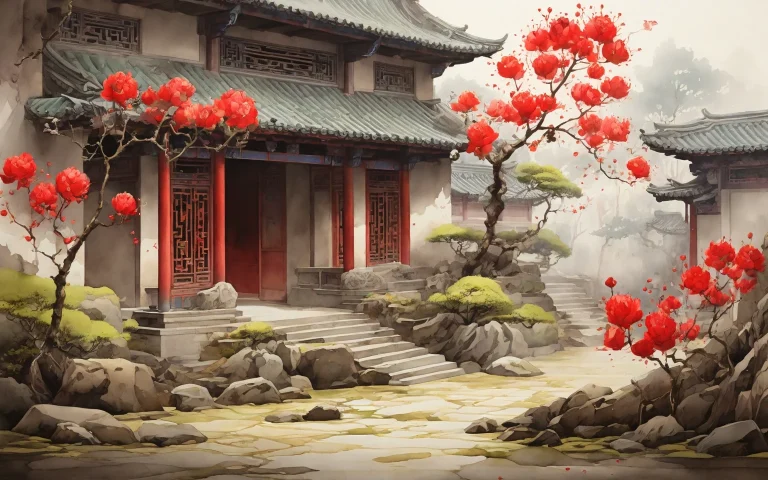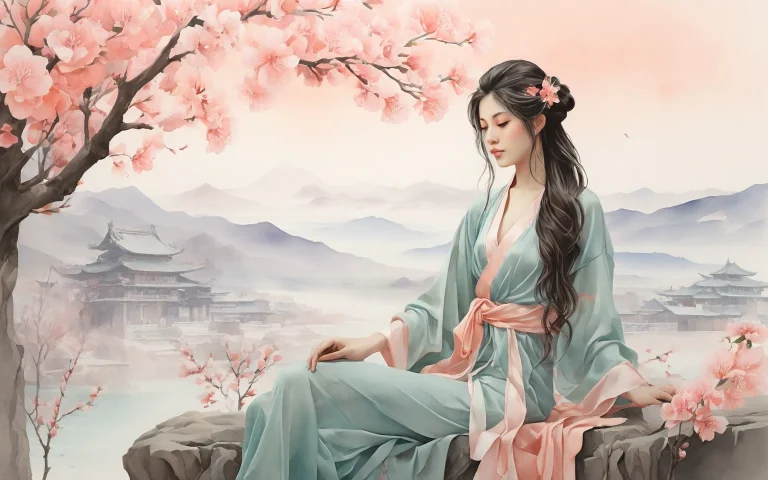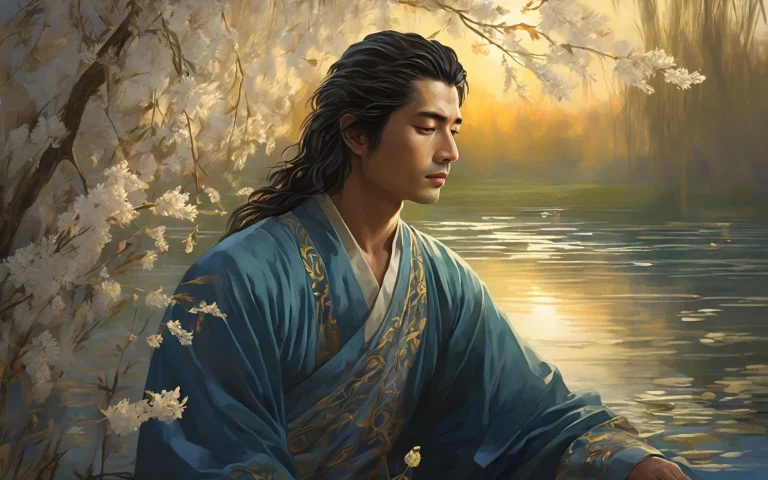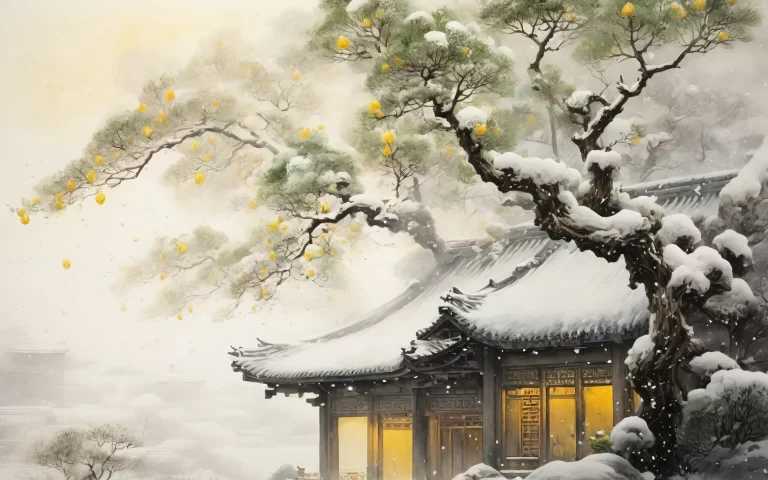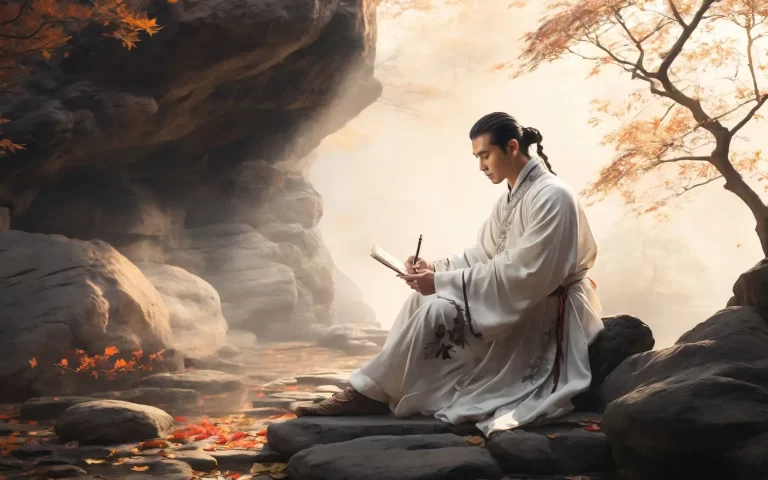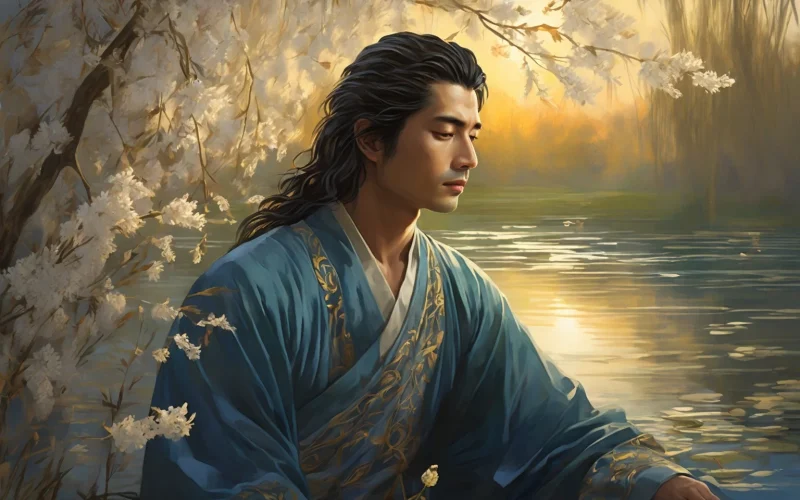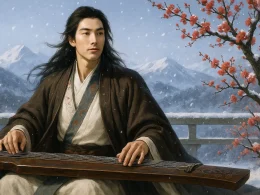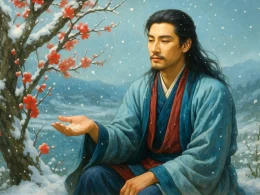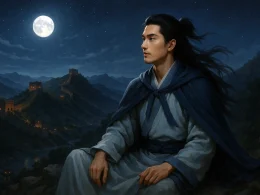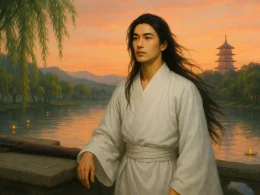Han Yu (韩愈, 768 - 824) , a native of Mengzhou in Henan, was the leader of the Ancient Prose Movement during the Tang Dynasty. He earned the jinshi degree in 792 and rose to the position of Vice Minister of Personnel. His prose is vigorous and powerful, while his poetry is known for its bold and unconventional style. His poem Mountain Rocks pioneered the technique of "prosifying poetry." A mentor to poets like Meng Jiao and Jia Dao, he is regarded as the foremost of the "Eight Great Prose Masters of the Tang and Song." His revolutionary contributions to literature had a profound and lasting influence, earning him the revered title of "Literary Master for the Ages."
Major Works
Life
Han Yu's life epitomized the ideal Tang scholar-official. Born in 768 into a declining aristocratic family from Heyang, Henan, he claimed descent from the prominent Han clan of Changli, though his family had long lost its former glory. Orphaned at three, he was raised by his elder brother Han Hui, and after his brother's death when Han Yu was twelve, he was brought up by his widowed sister-in-law, Zheng Shi. These early hardships tempered his will and forged his indomitable character.
Even in his youth, Han Yu displayed extraordinary literary talent. By seven, he could recite classical texts, and by thirteen, he was composing essays. At nineteen, he traveled to Chang'an to take the imperial examinations but repeatedly failed. During this period, he wrote petitions such as Letter to the Chancellor, showcasing his brilliance and ambition. After four attempts, he finally passed the jinshi examination in 792, yet he struggled in subsequent higher-level exams, facing a rocky start to his official career.
The year 803 marked a turning point in Han Yu's career. As a censor, he witnessed the oppressive policies of the capital governor Li Shi and boldly submitted Memorial on the Drought and Famine, exposing official misconduct. This act of integrity led to his demotion to a minor post in Yangshan. During the Yuanhe era, he assisted Chancellor Pei Du in suppressing the Huaixi Rebellion, earning promotion to Vice Minister of Justice. However, in 819, his Memorial on the Buddha's Bone nearly cost him his life. Opposing Emperor Xianzong's worship of Buddhist relics, he was sentenced to death but was spared thanks to Pei Du's intervention, instead being exiled to Chaozhou as a prefect.
In just eight months in Chaozhou, Han Yu achieved remarkable governance—driving away crocodiles plaguing the region and promoting education—earning enduring local reverence. To this day, the Han Yu Temple in Chaozhou remains a site of worship. In his later years, he held key positions such as Chancellor of the National Academy, Vice Minister of War, and Vice Minister of Personnel. He died in 824 at fifty-seven and was posthumously honored as Minister of Rites with the title "Duke Wen," revered as Han Wengong.
Literary Achievements
Han Yu's literary contributions were multifaceted. As the leader of the Ancient Prose Movement, he advocated "writing to illuminate the Way," countering the ornate parallel prose of the Six Dynasties. His essays exhibit remarkable diversity.
In philosophical discourse, works like On the Way, On Human Nature, and On Slander constructed a comprehensive Confucian theoretical framework. On Teachers and Advice on Learning expounded his educational philosophy, with lines like "A teacher transmits wisdom, imparts knowledge, and resolves doubts" becoming timeless maxims. These essays are profound in thought, rigorous in logic, and lucid in argument.
His miscellaneous writings, such as Miscellaneous Sayings and Explaining the Capture of a Qilin, are concise yet profound. Prefaces like Farewell to Li Yuan and Seeing Off Meng Jiao are deeply moving, blending personal sentiment with universal truths.
In biographical writing, Han Yu broke conventions. Postscript to the Biography of Zhang Xun and Epitaph for Liu Zongyuan vividly portrayed personalities through telling details, pioneering a new approach to life writing.
As a poet, Han Yu left over 400 poems marked by stylistic innovation. His ancient-style poems like Southern Mountains and The Luhun Mountain Fire employed descriptive prose techniques, creating grand, expansive visions. Mid-Autumn Moon, for Zhang Shu infused poetry with prose syntax, forging new expressive forms. In regulated verse, At Lan Pass, for My Grandnephew reflects his melancholy exile, while Early Spring, for Vice Minister Zhang Ji captures spring's freshness—"Drizzles moisten the imperial streets like cream"—a line immortalized as a masterpiece.
Poetic Style
Han Yu's literary style was strikingly original. His prose, as seen in On the Way, surges with energy—"Universal love is called benevolence"—unfolding like a mighty river. Works like On Taboos build airtight arguments through meticulous logic. His linguistic creativity birthed enduring idioms like "scurrying like flies, cringing like dogs" and "bowing the head, ears drooping." Emotionally, his Mourning My Nephew Shi'erlang is hailed as "the most moving elegy through the ages," its grief palpable in every word.
In poetry, he pioneered "prosifying poetry." Mountain Rocks follows a travelogue's structure, breaking poetic conventions. To Zhang Ji features startling imagery—"pulling a whale's tooth with bare hands"—showcasing his daring imagination. Recommending a Scholar directly articulates literary theory, introducing discursive poetry. Yet verses like The Basin Pond—"All night frogs croak till dawn"—reveal a simpler, lifelike charm.
His style evolved distinctly: early works (before 35) pursued the bizarre (Extreme Cold); middle period (35–50) crystallized his uniqueness (To Zhang Ji); late works (after 50) returned to simplicity (First Boating on South Creek). This shift from the unconventional to the understated reflects his deepening artistic mastery.
Legacy
Han Yu's influence extends beyond literature into intellectual history. Philosophically, he reconstructed Confucian orthodoxy, tracing its lineage through "Yao, Shun, Yu, Tang, Kings Wen and Wu, the Duke of Zhou, Confucius, and Mencius," charting Confucianism's future. His "Three Grades of Human Nature" theory deeply impacted Neo-Confucianism. Culturally, his staunch anti-Buddhism defended Chinese tradition, embodying cultural consciousness.
Literarily, he directly inspired Song masters like Ouyang Xiu and Su Shi. His prose became imperial examination models in later dynasties. Disciples like Li Ao and Huangfu Shi formed lasting literary schools. Su Shi praised him for "reviving literature after eight dynasties of decline" and "saving the Way from drowning." Qian Mu hailed him as "the forerunner of Song Neo-Confucianism."
Today, Han Yu's legacy remains vital. His Ancient Prose Movement prefigured vernacular reforms; his educational ideals still inform teacher ethics; his cultural stewardship inspires modern intellectuals. Globally, his works are translated widely. In Mengzhou and Chaozhou, memorials to him thrive—a testament to his immortal place in Chinese civilization.






